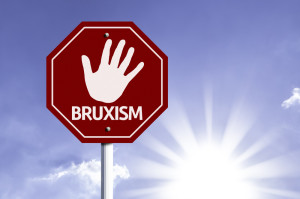 If you suffer from bruxism, you are not only placing your teeth at high risk of future damage. You are also placing the surrounding structures that partially compose – and support – your oral cavity and smile at risk. For instance, you may suffer from jaw joint discomfort – commonly known as TMJ disorder – as a result. This is why we consider TMJ treatment a preventive solution, rather than restorative, in most cases. We seek out the problem and improve your daily comfort, while keeping long-term harm at bay. Learn more about the connection between teeth grinding and your TMJ health to better understand why seeking treatment is in your best interest.
If you suffer from bruxism, you are not only placing your teeth at high risk of future damage. You are also placing the surrounding structures that partially compose – and support – your oral cavity and smile at risk. For instance, you may suffer from jaw joint discomfort – commonly known as TMJ disorder – as a result. This is why we consider TMJ treatment a preventive solution, rather than restorative, in most cases. We seek out the problem and improve your daily comfort, while keeping long-term harm at bay. Learn more about the connection between teeth grinding and your TMJ health to better understand why seeking treatment is in your best interest.
What Is Bruxism?
Bruxism is a disorder that refers to patients who habitually grind their teeth or clench their teeth. This may occur during waking hours or at night. In most cases, patients are unaware that they are performing the act, sometimes until symptoms occur or a friend or loved one recognizes the problem. There is no one particular cause for bruxism but it is not something that will go away on its own. Unfortunately, it may result in serious long-term damage.
Does Bruxism Cause TMJ Disorder?
Yes, bruxism may cause or contribute to TMJ disorder, a problem that occurs when your TMJs (temporomandibular joints) – also called jaw joints – fail to function properly. One of the main culprits in causing and aggravating TMJ disorder is stress and strain placed on the jaw joints. The consistent pressure and movement of bruxism causes a significant amount of strain, which is why we encourage patients to seek TMJ treatment. You will be able to prevent symptoms and long-term damage associated with both issues.
How Can You Help Me?
For the most part, we will suggest two forms of TMJ treatment. First, we will provide you with an oral appliance much like a mouthguard. You will wear it while you sleep at night, preventing your teeth from touching, so you can no longer grind or clench. This appliance will also protect your jaw joints from pressure and strain. We may also address the structure of your back teeth. If bruxism causes erosion, improving their physical structure may also protect your jaw joints from the strain associated with an unbalanced bite.
ABOUT YOUR SHERIDAN, WY DENTISTS:
Questions about our Sheridan, WY dentist office? To learn more about Grinnell Street Dental services, or to schedule an appointment with one of our doctors, contact us at (307) 672-7567. We welcome residents from Sheridan, Gillette, Billings, Miles City, and the neighboring communities.







